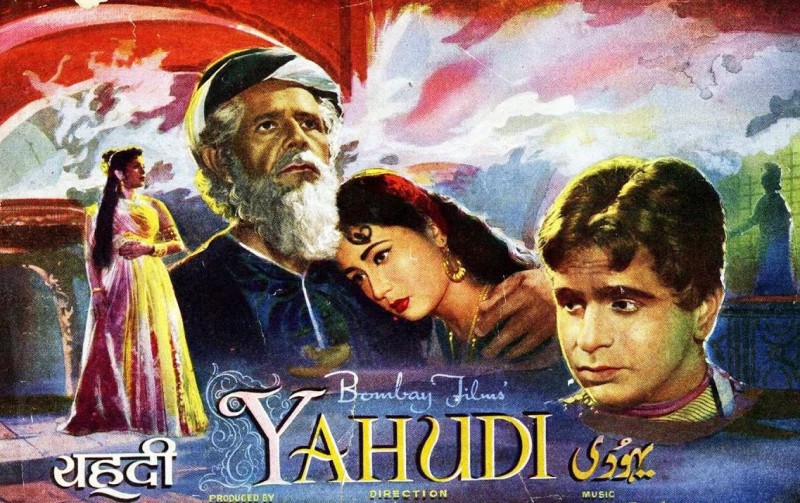
There is a long tradition of literary works, plays, and historical events serving as inspiration in the world of cinema. One such outstanding adaptation is the movie "Yahudi," which is based on the play "Yahudi Ki Ladki" (The Daughter of a Jew) by Agha Hashar Kashmiri. An important link in a series of adaptations that spans centuries and continents is this play, which was first published in 1913. We must travel through history and literary development to understand the origins of the film "Yahudi," beginning with W.T. Moncrieff's play "The Jewess" from the 19th century and continuing all the way back to Eugene Scribe's libretto for J.F. Halevy's opera "La Juive."
Our story starts in the 19th century with "The Jewess," a play by W.T. Moncrieff. A product of its time, this theatrical production explored themes of religion, love, and prejudice while taking place in the year 1414 during the Council of Constance. The play was first presented to audiences in November 1835 at the Haymarket in London, where it was well received.
Even further back, Moncrieff's inspiration for "The Jewess" can be found in Eugene Scribe's libretto for J.F. Halevy's opera, "La Juive," which had its world premiere on February 23, 1835, at the Opéra in Paris. Against a backdrop of religious conflict and societal tensions, Scribe's work was a masterful adaptation of historical events and characters.
Both the films "La Juive" and "The Jewess" explored the intricate world of religious intolerance and persecution. Eleazar, a Jewish goldsmith, and his daughter Rachel were central figures in the narrative. Eleazar's hidden past and Rachel's love for a Christian nobleman become entangled in a web of deceit, betrayal, and ultimately tragedy as the drama plays out.
While shifting the setting and time period of the story, Moncrieff's adaptation of Scribe's libretto in "The Jewess" kept the main themes and character dynamics. As it explored universal themes of love, sacrifice, and the effects of societal prejudices, this shift made it possible for the story to connect with a wider audience.
Let's fast-forward to the early 20th century, when renowned playwright Agha Hashar Kashmiri created "Yahudi Ki Ladki" (The Daughter of a Jew), drawing inspiration from Moncrieff's "The Jewess" play. However, Kashmiri did not simply replicate the work of his forebears; he added his own distinct viewpoint and artistic sensibility to the adaptation.
Kashmiri's "Yahudi Ki Ladki" kept the central story of a Jewish father and daughter battling love and prejudice, but it set the action in the Roman era to give it a distinct historical context. With this daring change, Kashmiri was able to reframe his exploration of the themes of societal division and religious conflict.
"Yahudi" tells the tale of Hannah, a Jewish woman, and her father Nehemiah against the opulence of classical Rome. A dramatic and moving story of love, sacrifice, and the clash of cultures results from their lives becoming intertwined with that of Marcus, a Roman prince. This classic tale was brought to the big screen in 1958 by the Bimal Roy-directed movie, which enthralled viewers with its gripping plot and standout performances.
The progression from Eugene Scribe's "La Juive" libretto to W.T. Moncrieff's "The Jewess" and then to Agha Hashar Kashmiri's "Yahudi Ki Ladki" and the ensuing film adaptation "Yahudi" is evidence of the enduring power of storytelling. Age-old themes of love, prejudice, and religious conflict have been given fresh life in each iteration of this story by adjusting to audiences' preferences and the shifting cultural climate.
"Yahudi" is a shining illustration of how a narrative can cut across space and time, resonating with viewers over many generations. It serves as a reminder of both the value of confronting societal prejudices and the universality of human emotions. In the end, "Yahudi" proves the enduring value of adaptation and storytelling by showing us that great stories can be reborn in various formats and still resonate with audiences across eras and cultures.
Box Office Buzz: September 28, 2023 - India
Ranveer Singh's Diet Secrets Revealed: How He Became Ram for 'Ram-Leela'
Tanhaji: The Landmark 100th Film in Ajay Devgn's Storied Career